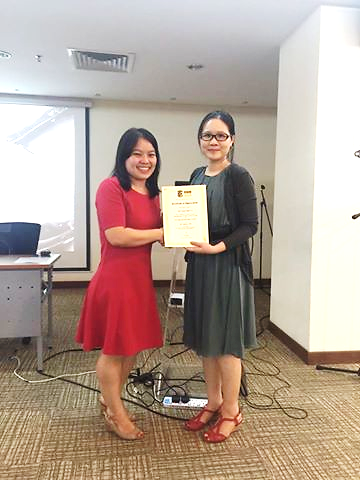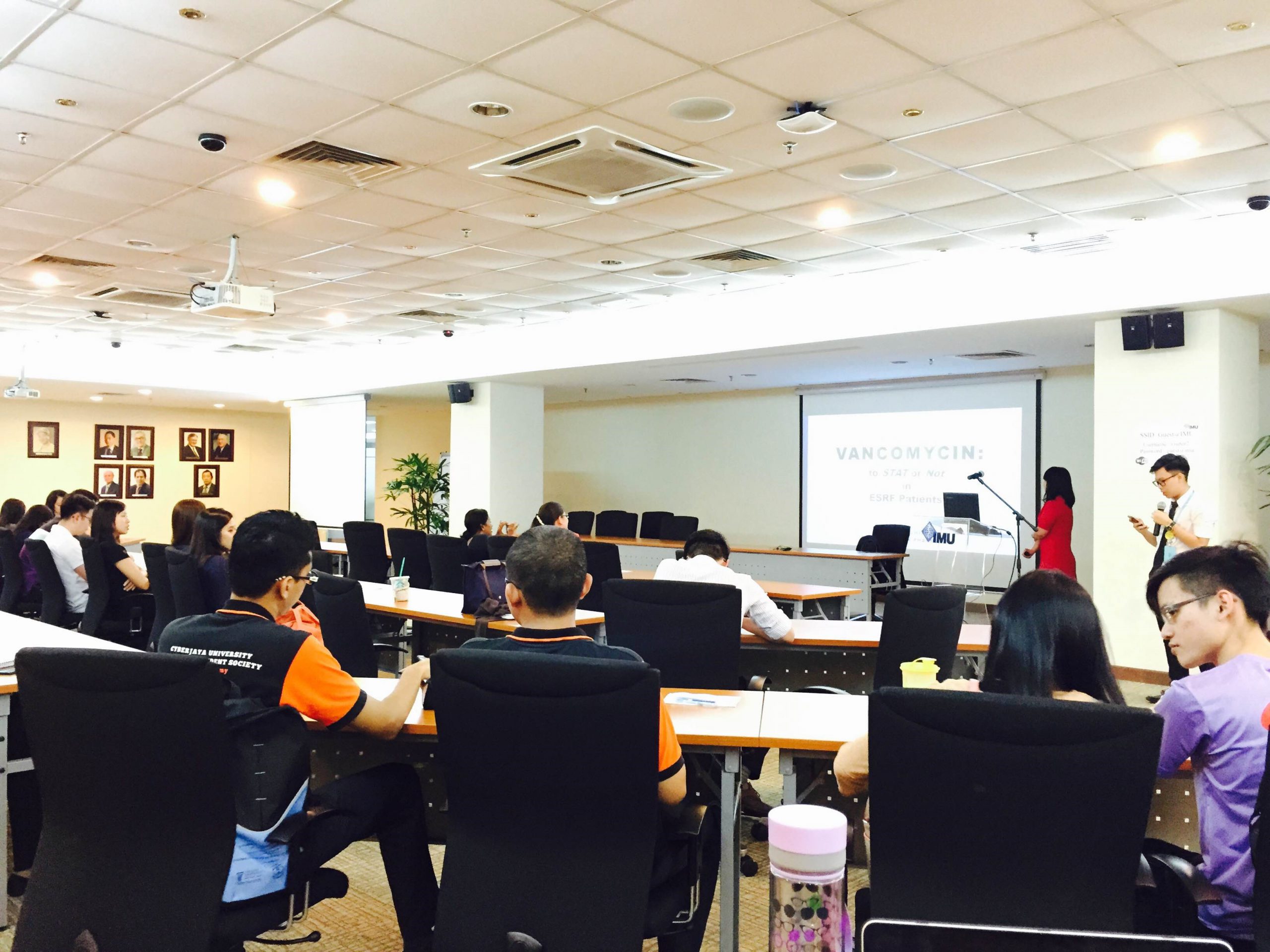28 January 2016- A talk entitled “Vancomycin: To STAT or not to STAT in End-stage-renal-failure (ESRF) Patients” was held at the Senate Room in IMU Bukit Jalil Campus. The talk is a joint collaboration between Malaysian Pharmaceutical Society-Young Pharmacist Chapter (MPS-YPC) and IMU Alumni which successfully attracted the attendance of around 70 people including working pharmacists as well as students from different universities. The speaker of this talk was an IMU alumnus, Jasmine Ching. She studied the IMU – University of Strathclyde MPharm programme and did her pre-registration training at the National Pharmaceutical Control Bureau. Subsequently, she started working with Hospital Seremban and then transferred to Hospital Kuala Lumpur. Since 2011, she has been practicing in the nephrology ward. She furthered her studies and obtained her Masters in Clinical Pharmacy from Universiti Kebangsaan Malaysia (UKM) in 2013. She has a special interest in nephrology and is actively involved in Peritoneal Dialysis Medication Therapy Adherence Clinic (MTAC) and also Renal Transplant MTAC.  Jasmine shared with the audience that infection remains one of the major problems in dialysis patients. Frequent manipulation of vascular-access site and the use of catheters to perform haemodialysis increases the patients’ risk of infection particular with gram-positive organisms. Vancomycin is a bactericidal glycol-peptide antibiotic which remains one of the critical antibiotics for the treatment of these gram-positive organisms such as methicillin-resistant Staphylococcus aureus. However, currently, the dosing of Vancomycin in patients with ESRD receiving haemodialysis is poorly defined as the half-life of Vancomycin, which is primarily excreted through the kidneys is prolonged in these patients. In addition, the removal of Vancomycin is also determined by other factors such as the type of haemodialysis prescribed, types of membrane used and molecular size of solute and other factors. In the era where antibiotic resistance is fast becoming a major health problem, it is particularly essential that the serum Vancomycin concentration achieves that of the recommended therapeutic level in order to prevent resistance in these patients. By the end of the talk, she concluded that the decision of whether to stat or not to stat vancomycin for ESRF patients depends on the situation and emphasised it through case study. The talk ended with a presentation of certificate and gift as a token of appreciation to the speaker by Stephenie, the secretory of MPS-YPC.
Jasmine shared with the audience that infection remains one of the major problems in dialysis patients. Frequent manipulation of vascular-access site and the use of catheters to perform haemodialysis increases the patients’ risk of infection particular with gram-positive organisms. Vancomycin is a bactericidal glycol-peptide antibiotic which remains one of the critical antibiotics for the treatment of these gram-positive organisms such as methicillin-resistant Staphylococcus aureus. However, currently, the dosing of Vancomycin in patients with ESRD receiving haemodialysis is poorly defined as the half-life of Vancomycin, which is primarily excreted through the kidneys is prolonged in these patients. In addition, the removal of Vancomycin is also determined by other factors such as the type of haemodialysis prescribed, types of membrane used and molecular size of solute and other factors. In the era where antibiotic resistance is fast becoming a major health problem, it is particularly essential that the serum Vancomycin concentration achieves that of the recommended therapeutic level in order to prevent resistance in these patients. By the end of the talk, she concluded that the decision of whether to stat or not to stat vancomycin for ESRF patients depends on the situation and emphasised it through case study. The talk ended with a presentation of certificate and gift as a token of appreciation to the speaker by Stephenie, the secretory of MPS-YPC.









